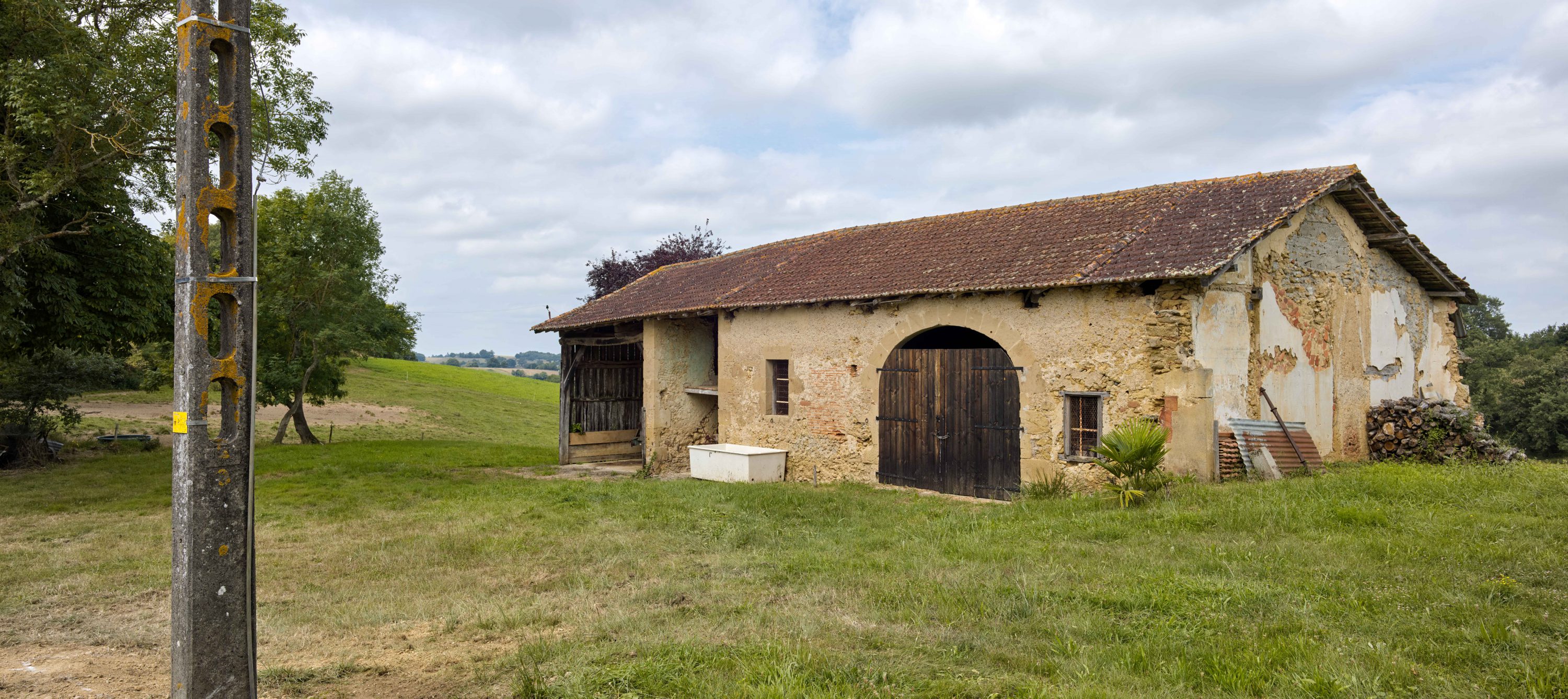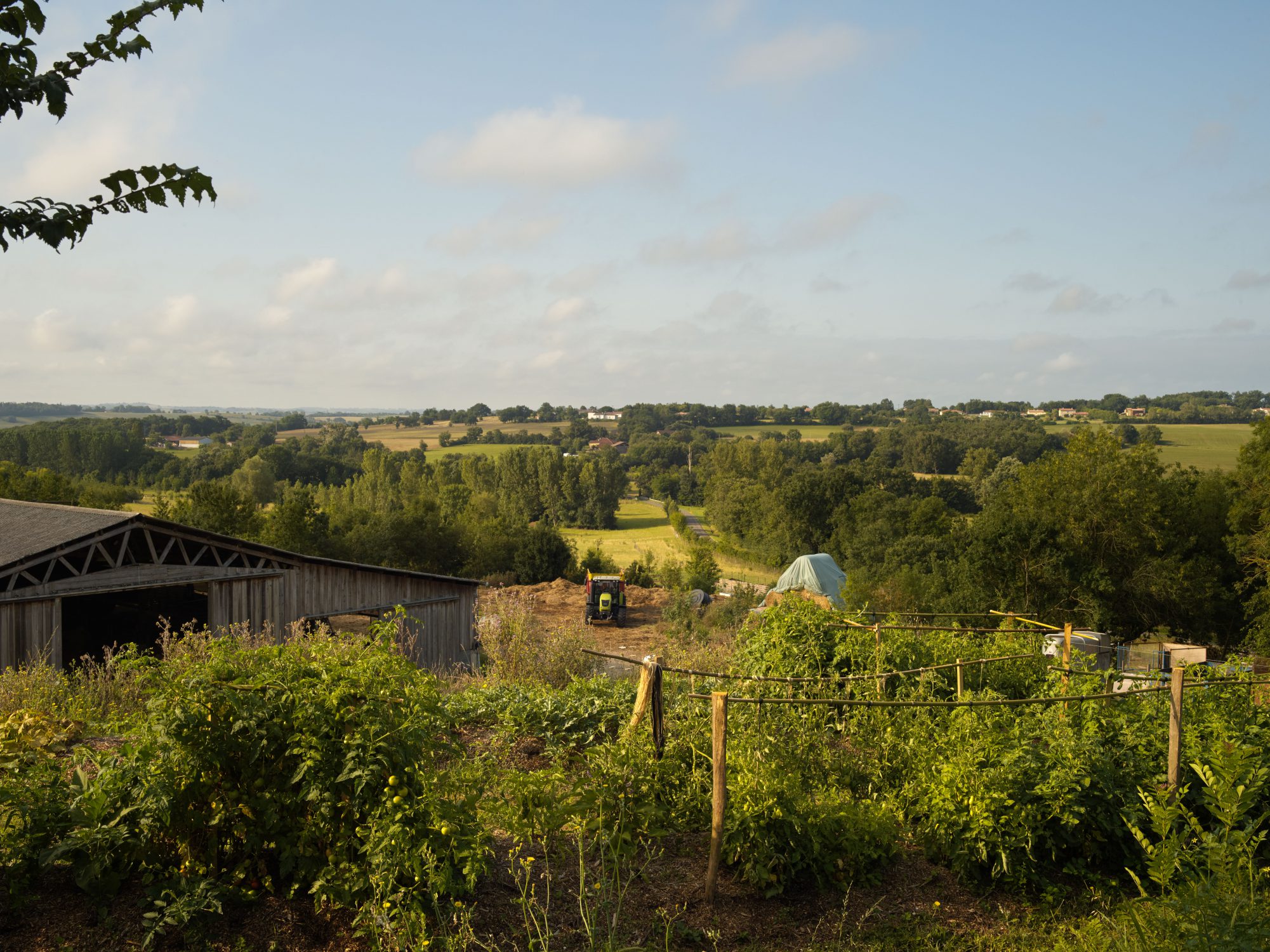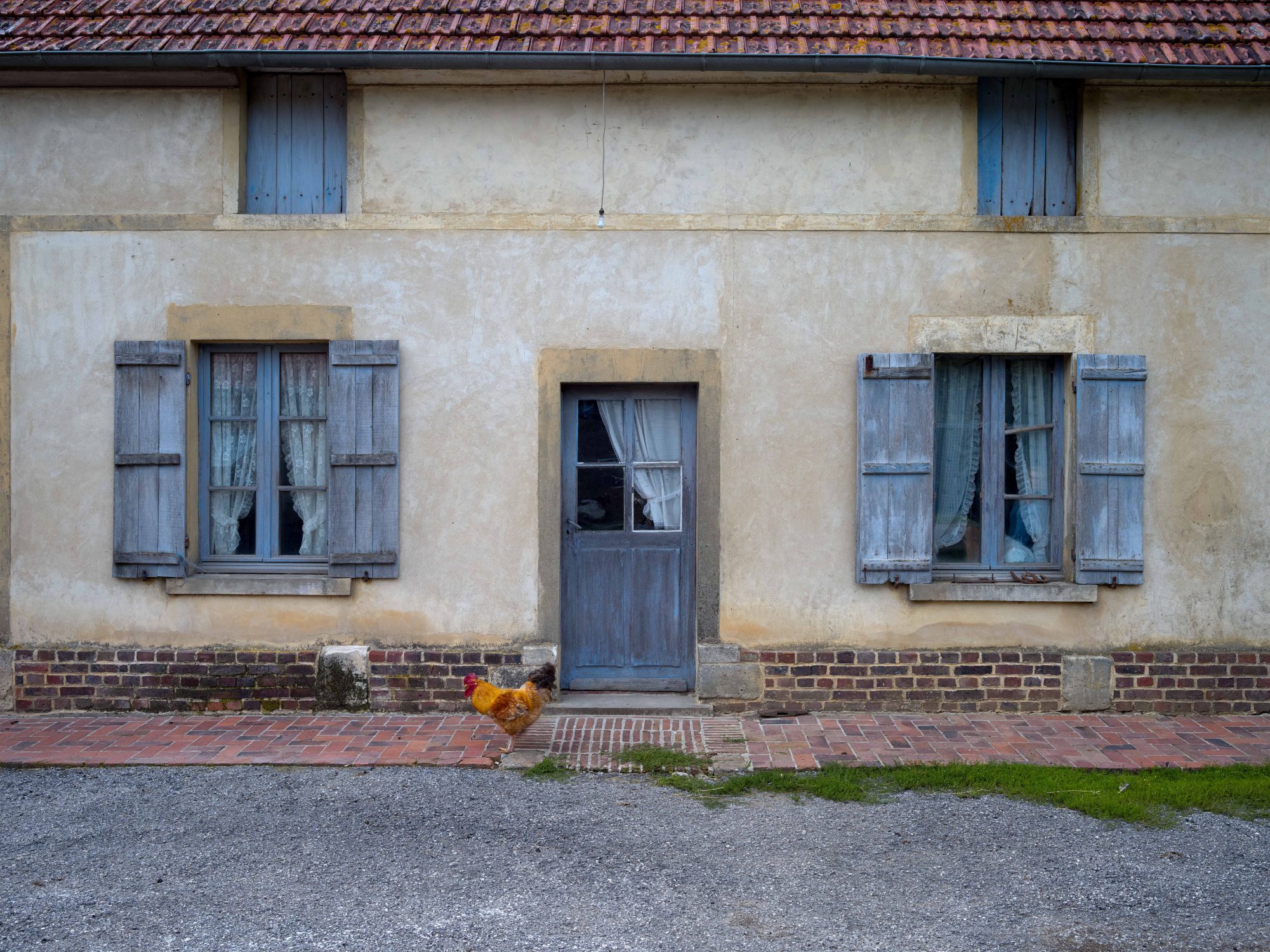
Maison Delamarre
A farm that makes you think of pictures in a children’s book: cows grazing in the meadow, chickens scratching around in the farmyard, a cat purring on a windowsill and geese cackling loudly to announce our arrival.
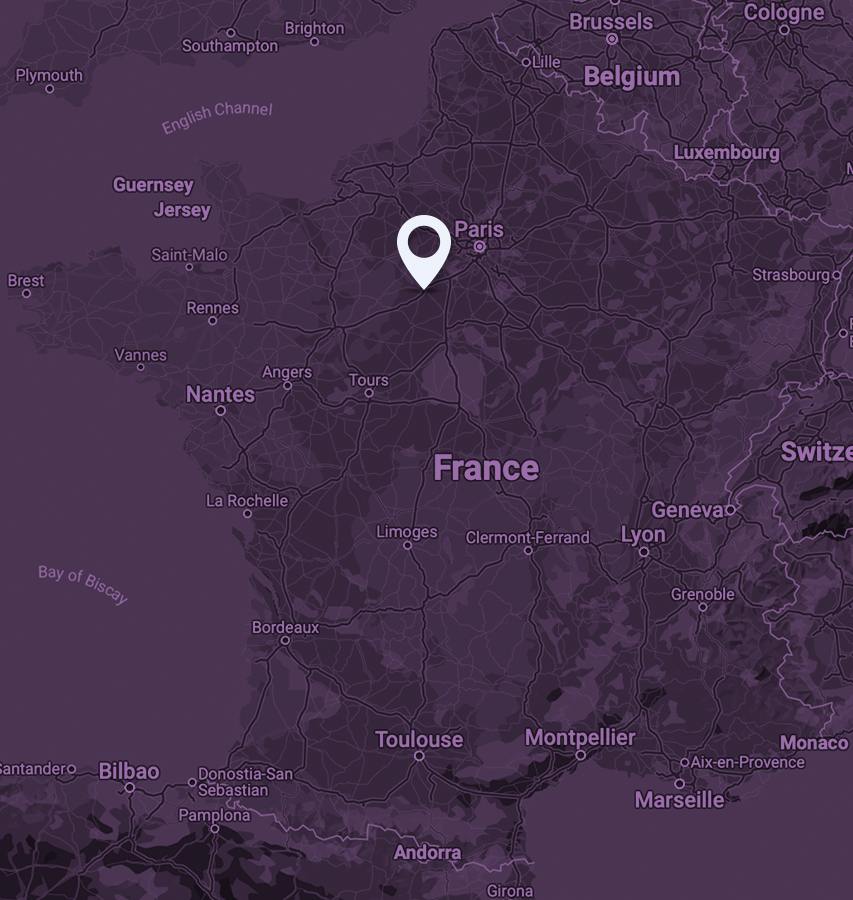
The farm is in a place called Malassise, a hamlet of barely seventy residents less than an hour’s drive from Paris. It has been a family farm for generations, and for the past thirty-two years it has been fully organic.
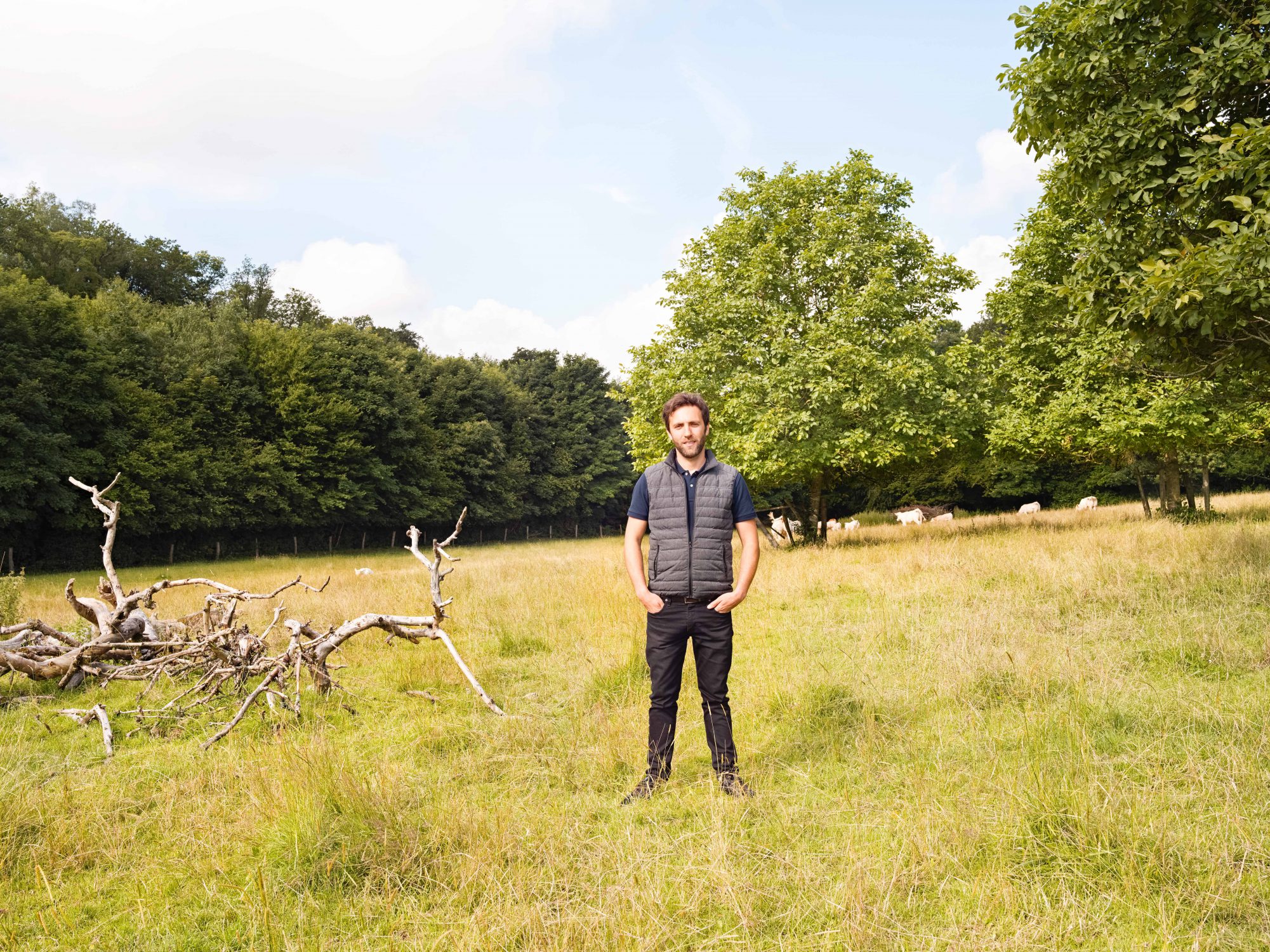
"The land feeds the animals, the animals feed the land"
Benjamin Delamarre
In contrast to other farms, especially non-organic farms, the animals are not fed on soya (mainly from America and often genetically modified), nor on silage made from maize, nor on dried beet pulp, which is cheap and nutritious but causes health problems for the animals and increases the acidity of the meat.
The animals benefit from their high-quality diet, and they also receive an optimal quantity of the food they need, depending on their stage of growth, their age, and whether they are suckling calves. During drought or a shortage of grass in the meadows, we give them supplementary feed while they are outside.
Benjamin Delamarre explains what he understands by organic farming, animal welfare and respect for the land.
The cattle feed is 100 per cent organic and 100 per cent produced on the farm. The animals are out in the meadow for two thirds of the year (and the meadow is given no artificial fertilizer). During the winter they are housed in sheds at the farm, where they are fed on untreated hay, organic lucerne hay and organic grains, all produced on the farm.
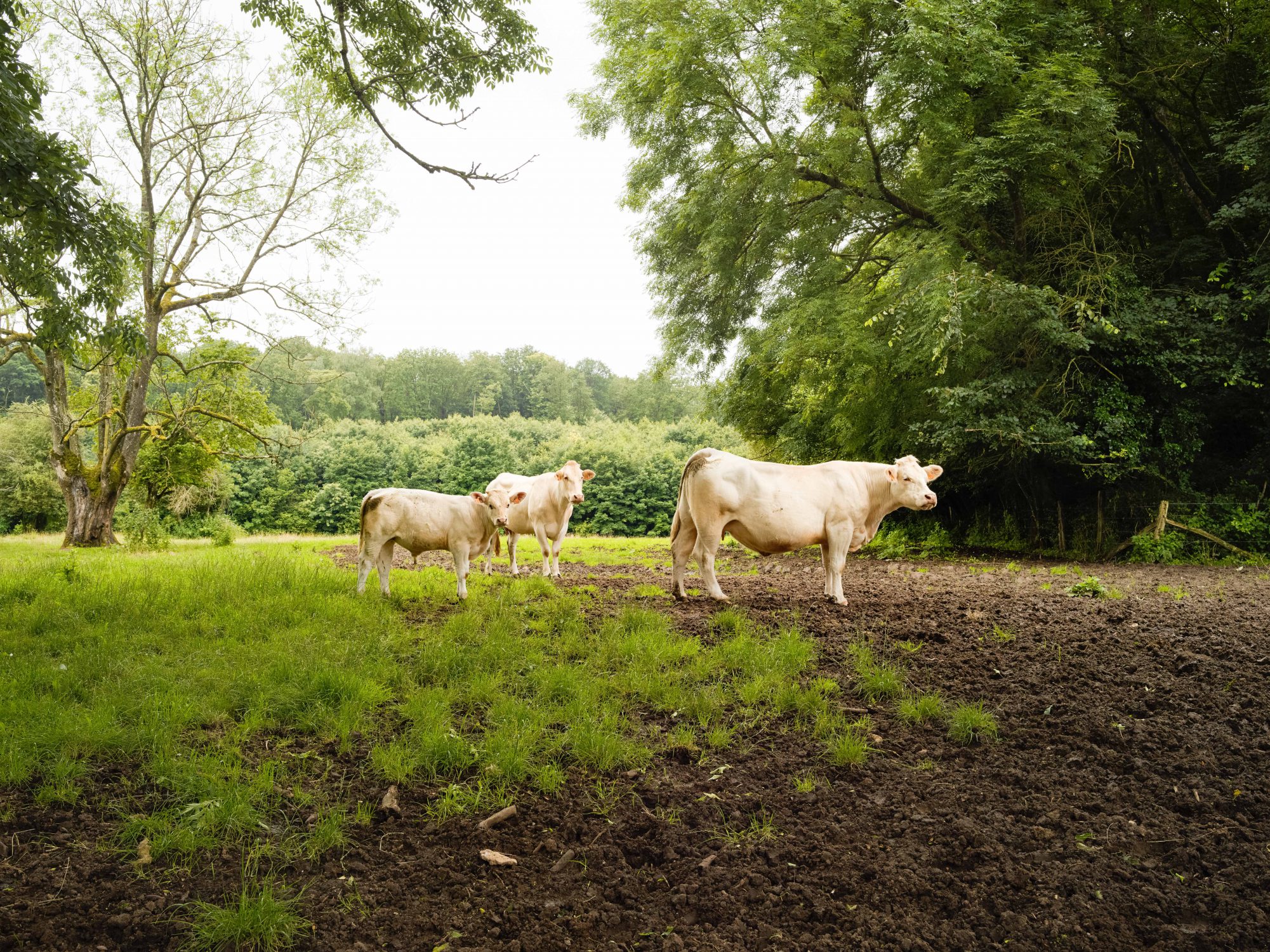
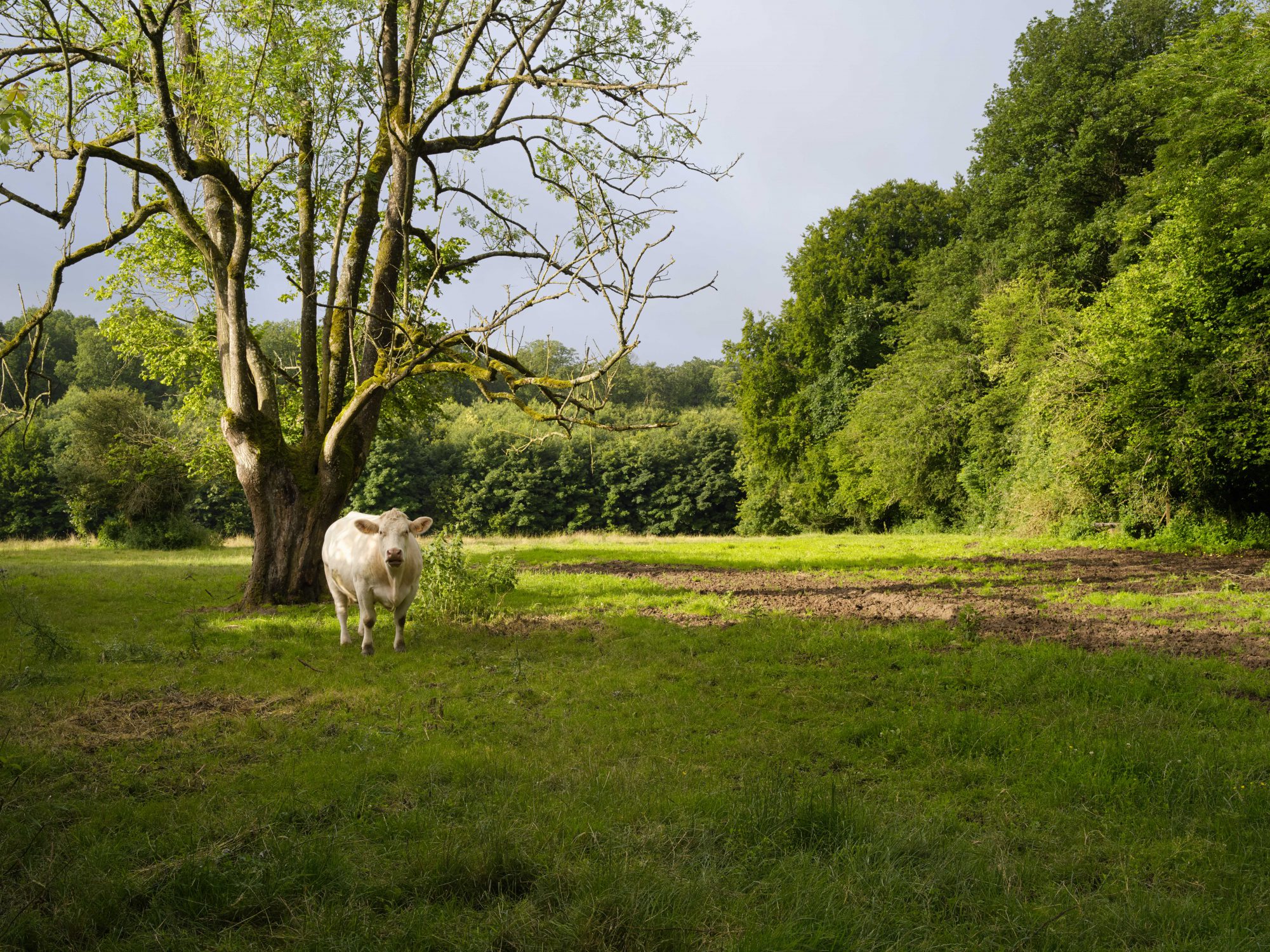
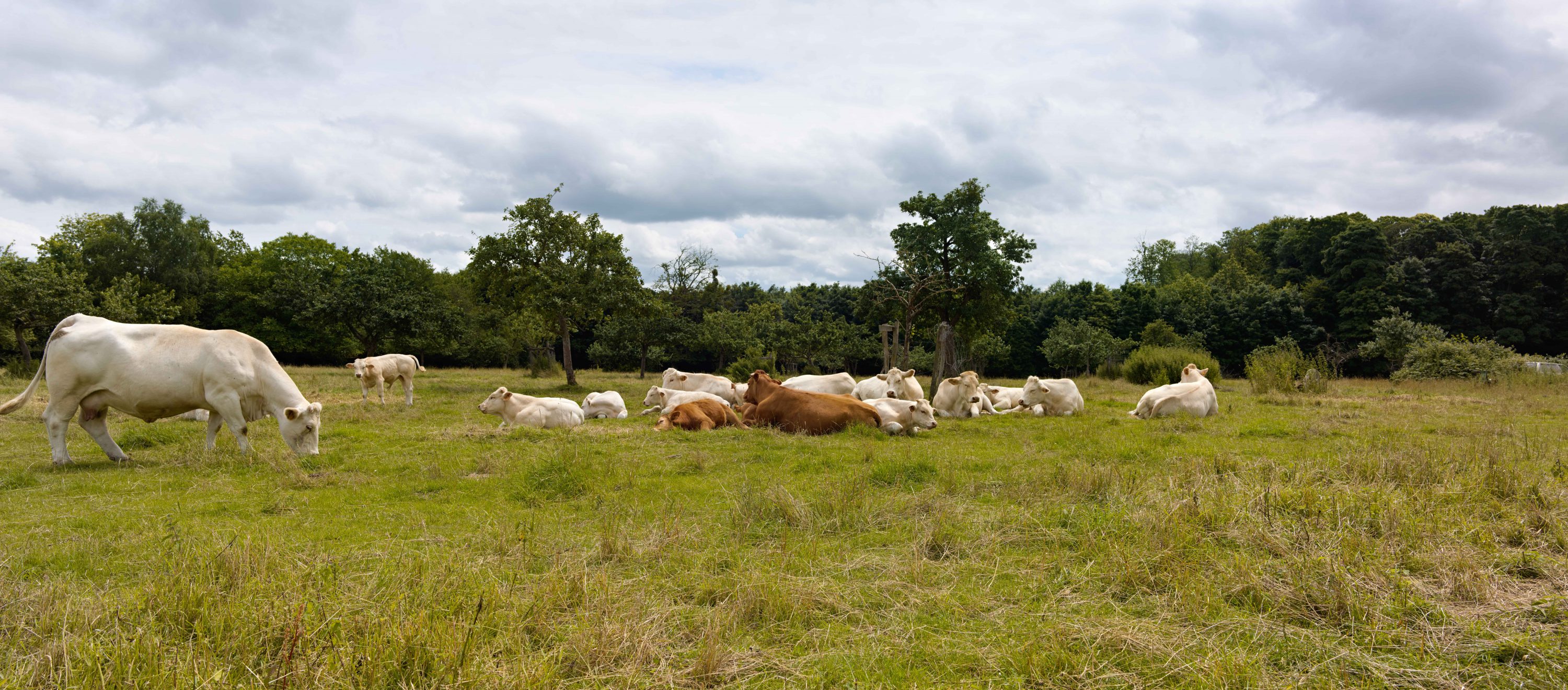
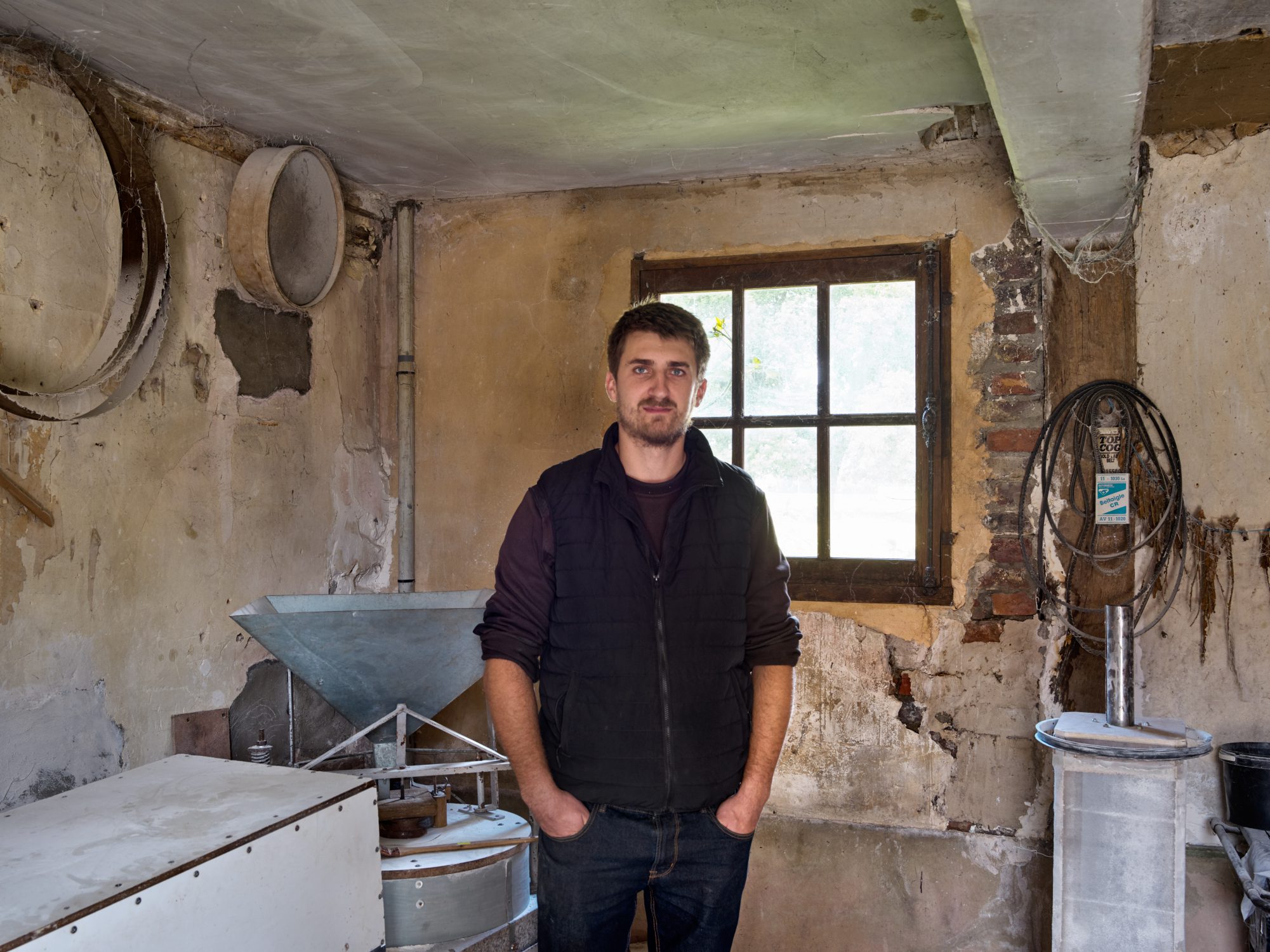
"To make flour on the farm we use a millstone that grinds slowly and preserves the whole grain."
Julien Delamarre
“Our organic wheat strains are naturally low in gluten compared to certain conventional strains, which are selected precisely for their high gluten content.
But the amount of gluten in your pizzas and tarts may also be a result of the ‘cracking’ method, used by food producers to separate flour into its component parts, which splits each grain of wheat into thirteen elements. The gluten is isolated and then injected into the flour in large quantities so that the dough can be made to rise all the more quickly.”
Meat, flour, lentils, oil, juice and jam.
The wheat grain is not crushed by the weight of the millstone but slowly and finely ground.
“That way we preserve the wheatgerm and the kernel to produce flour of very high quality that is more easily digestible and more nutritious. Tarts, pancakes or bread all have a more subtle flavour and are easier to digest than when made with conventional flour.”
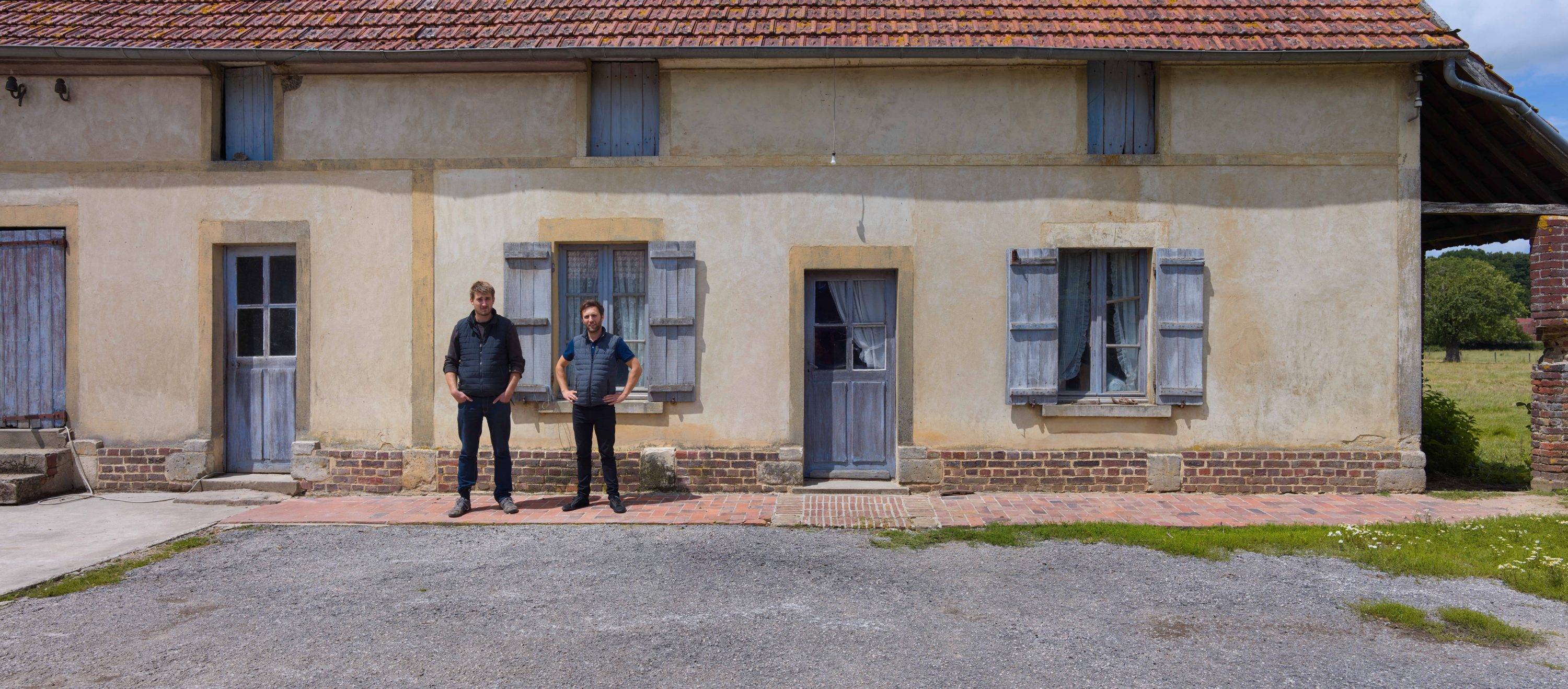
Three generations work together to ensure animal welfare and the production of meat of exceptional quality as well as flour, lentils, oil, fruit juice and jam.
“Our father worked 40 years, growing and rearing without getting any feedback on his work. Undoubtedly, his work was good, but with all the intermediaries, the dealer, slaughterhouse, butcher and the retailers… the fruit of your labour gets lost.
He could not get feedback on his work but this is priceless information. To hear that your products are the best, is extremely gratifying for a farmer.”
"Our father converted the farm to organic 33 years ago, he was really one of the pioneers in organic farming."
We have selected another two stories that might inspire you.
